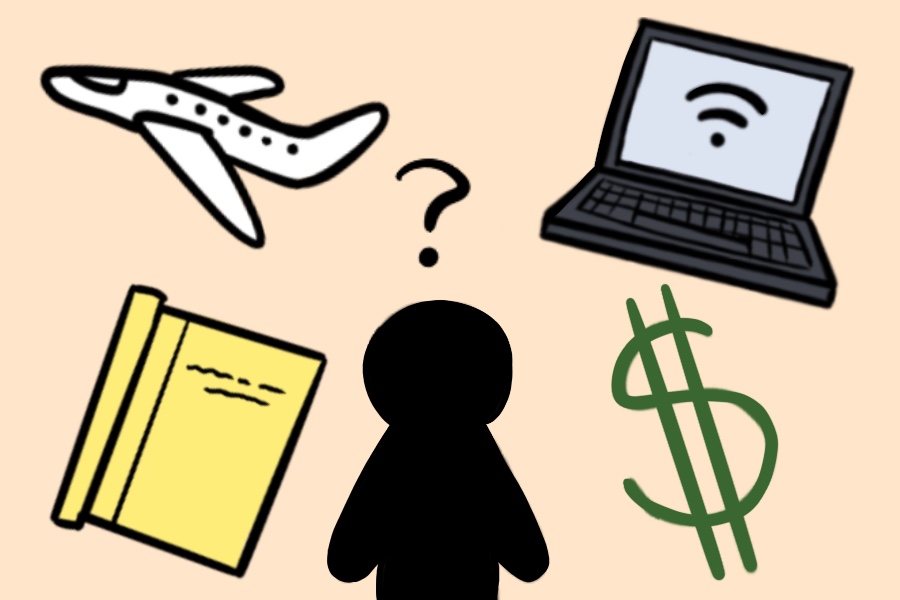Students forced to change flights, reconsider travel after Wildcat Wellness announcement
In the wake of Wildcat Wellness announcements, some students had to modify their travel plans.
January 5, 2022
When Northwestern announced it would implement a two-week Wildcat Wellness period, Weinberg senior Kristína Feiková changed her Jan. 4 flight to Jan. 16. Since she is often unable to travel to her home country of Slovakia, Feiková said she wanted to spend as much time there as possible.
The following day, Vice President for Operations Luke Figora sent an email clarifying that students must return to campus by Jan. 7 to fulfill COVID-19 testing requirements.
“I just wish they made the first email more clear, because it was really stressful afterwards when I found out actually you were supposed to be in Evanston by the seventh,” Feiková said.
After calling her airline, Feiková said she was unable to rebook her flight back to Chicago. However, she said the University has allowed her to return on Jan. 16 without quarantining.
While Feiková said she is happy to stay home for another two weeks, some other students are less content with the two-week remote learning period. Weinberg junior Mark Shwartz said he thinks Wildcat Wellness is unnecessary given high student vaccination rates and masking requirements.
“I expected a degree of normalcy and a degree of understanding that people can’t really deal with online school very well anymore,” Shwartz said.
Shwartz said he thought about changing his flight to a later date after the Wildcat Wellness announcement. However, after Northwestern announced students should return by Jan. 7, he said he did not want to come back too close to the testing deadline in case his flight was delayed.
Classes were initially set to start in-person on Jan. 3, which caused many students to purchase expensive post-new years flights on Jan. 1 and 2.
Schwartz said Northwestern should not have made the decision to start school on Jan. 3 in the first place.
“People were (either) going to have to pay an absurd amount of money to fly in on the second or the first or not get to spend New Year’s Eve with their families,” Shwartz said. “It just felt weirdly unfair for a lot of different people in a lot of different ways.”
For others, returning to Evanston by Jan. 3 was a cheaper option than extending their stays elsewhere. Medill sophomore Lucy Dai said she decided not to go home to Beijing over Winter Break because of the country’s COVID-19 quarantine policies.
Instead, she visited San Francisco and returned to Evanston on Jan. 1, even after the Wildcat Wellness announcement was made. Dai said although she booked her flight before the notice, she still would have flown back on Saturday.
“Staying in California costs a lot of money…especially with hotels and traveling,” Dai said. “I could have (delayed my flight), but because it got to be so much more expensive with more days living in hotels…I didn’t.”
While the decision to make classes remote with the requirement to return to campus by Jan. 7 was confusing and frustrating for some, Feiková said the University was accommodating to her situation.
While Feiková does not need to quarantine, she is required to send a negative COVID-19 test result to NU before her flight. She also must take two tests upon return to Evanston.
“Obviously it would have been better if (the decision to enforce Wildcat Wellness) was made earlier,” Feiková said. “But I understand that it’s a complicated decision and they probably tried to come up with other solutions.”
Email: [email protected]
Twitter: @swarthout_iris
Related Stories:
— As students plan post-break campus return, flight price hikes impede accessibility
— International students overcome travel obstacles, adjust to campus life


